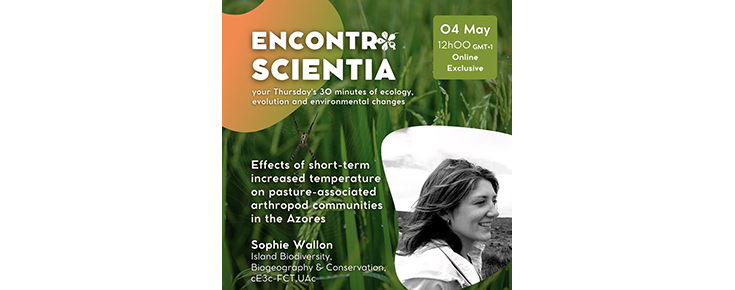
Por Sophie Wallon (cE3c - Island Biodiversity, Biogeography & Conservation).
The potential effects of climate change on island ecosystems are likely to have significant impacts on local biodiversity. Island environments have been recognized as some of the most vulnerable ecosystems to climate-related shifts and extremes. However, data on arthropod communities in island intensive pastures are scarce.
To address this, a study was conducted on Terceira Island (Azores archipelago - Portugal) where a small-scale simulated climatic change was created (with an average temperature increase of +1.2 ◦C) using Open Top Chambers (OTCs) on forage crops. The aim was to test the responses of arthropod communities associated with intensively managed pastures. Twenty 1x1 m plots were established at three different sites - 10 plots with OTC and 10 control plots. Arthropods were sampled using pitfall traps during two sampling events (winter and summer in 2020). The generalized linear mixed models (GLMMs) indicated that overall arthropod abundance was lower in OTCs. Specific arthropod taxa, such as spiders and beetles, responded quickly to the presence of OTCs. The assemblage of non-indigenous spiders showed a significant difference in diversity with slightly greater richness but lower abundance inside the warmer plots. On the other hand, the presence of OTCs resulted in a decline in beetle richness and abundance, which could be attributed to the multiple effects of warming. Therefore, in the Azores, this study is pioneering and further research is needed to gain a better understanding of the underlying ecological processes that contribute to the observed patterns.
Transmissão via Zoom (pw: 318877).













